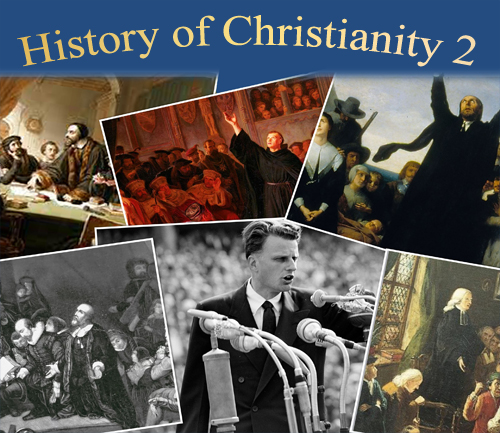Module 2: Martin Luther
Hi everyone, and welcome to the second module of the History of Christianity 2 Course. In this section, we'll be working through the life and ministry of Martin Luther, which represents the beginning of the Protestant Reformation. Luther is an extremely influential figure in the history of the Christian church. And the Protestant Reformation, of which he was a primary catalyst, dramatically changed the course of church history.
This module will help you to understand the tremendous changes in the history and practices of the European church, based on the revolutionary theological breakthrough of Luther and his contemporaries. The student will be exposed to the doctrines of Luther, the impacts on the church of his day, and the long term effect on the European church.
This module will also aid the student to evaluate these doctrines and changes, and work through how the lessons learned can be applied in their own life and ministry.
Introductory Scenario
Imagine that you are a member of the jury on a contentious criminal trial. You are convinced that the defendant is innocent, and the rest of the jury is convinced they are guilty. For whatever reason, you noticed some evidence that the rest of the jury overlooked, and you are convinced that you are right. There is tremendous pressure on you to go along with everyone else, though you have very good reasons to stand on your conclusion and convictions. What would you do in that situation? How could you resist the tremendous pressure? How would you try to convince the others that you are right? How would you respond if they attack you as being in the wrong? How would you respond in a similar situation dealing with issues even more important than a jury trial? Please consider these questions and be watching for material that will help you answer them as you work through this module.
Module Objectives and Outcomes
Upon successful completion of this module, the student will:
- Understand and describe the life of Martin Luther and the tremendous theological breakthrough that changed his life and ministry.
- Describe the theological ideas taught by Luther and the result of these ideas on the church of his time.
- Demonstrate the various reactions to Luther's ideas and actions and how they impacted subsequent history.
- Place the major events of Luther's life and ministry in a general chronology.
Instruction Guides
In this section, you'll find links to important instructional documents for this module. Click the following links to open each document. There is a set of instructions for individual study and a document for group study.
Textbook Content
In this section, you'll find a study guide for the textbook reading for module 2. And then you'll find the link to a practice quiz covering this textbook reading.
This section also contains a review quiz to test your understanding of the textbook material for this module. By clicking the banner below, you will be given a series of questions, in random order. The quiz will be different each time, so feel free to take it more than once.

Click the button next to the best answer for each question, or drag each term to its best definition. Then press the Submit
button at the bottom to see if your answers are correct.
Lecture Content
In this section, you will find the video lectures for the Martin Luther module. They are designed to be watched in order, but each video should make sense on its own. Click each banner to open access to each video. There are also links with each video if you prefer to watch on the Rumble or YouTube interface or download just the audio to listen offline.












































